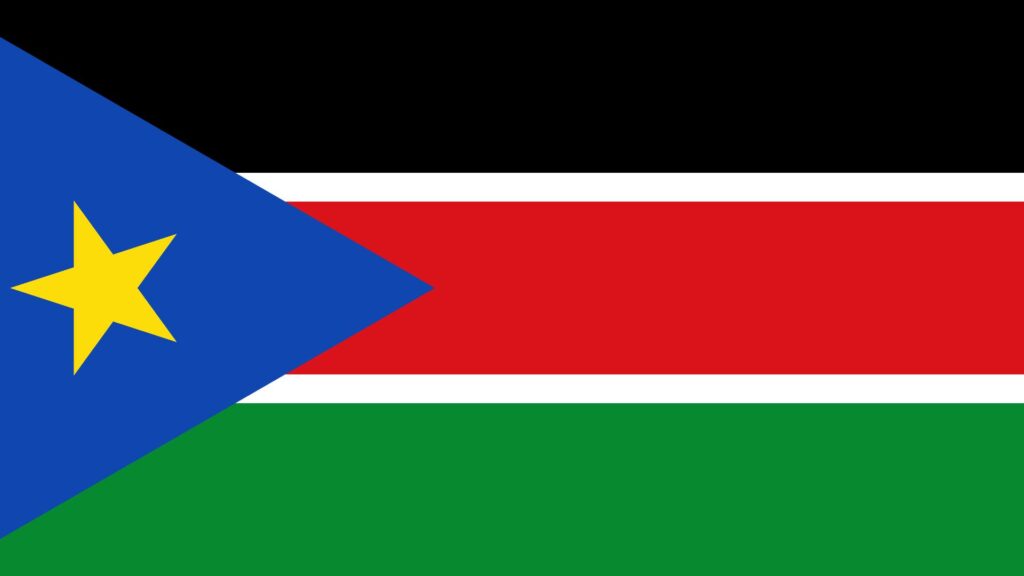South Sudan, a young nation born out of a long and brutal civil war, has been plagued by poverty since its independence in 2011. As one of the poorest countries in the world, it is imperative to delve deeper into the factors that have contributed to its dire economic situation. In this article, we will explore the historical background of South Sudan, the challenges it faces, and the efforts being made to alleviate poverty.
Historical background of South Sudan

South Sudan’s history is marred by conflict and instability. The country gained independence from Sudan in 2011 after a long and brutal civil war. However, the scars of war and the lack of infrastructure left South Sudan ill-prepared to handle the challenges of nation-building. The absence of a strong foundation and the need to establish basic institutions hindered the country’s economic progress.
Factors contributing to South Sudan’s poverty
Several factors have contributed to South Sudan’s status as one of the poorest countries in the world. Firstly, the country’s over-reliance on oil revenue has made it vulnerable to fluctuations in global oil prices. Additionally, the lack of diversification in the economy and the absence of a robust agricultural sector have further exacerbated the poverty crisis. The country’s high population growth rate and limited access to education and healthcare have also hindered its development.
Furthermore, South Sudan’s geographical location and climate have presented significant challenges. The country is prone to droughts and floods, which have had a devastating impact on agriculture, the primary source of livelihood for the majority of the population. These environmental factors, coupled with poor infrastructure and limited access to markets, have hindered economic growth and perpetuated poverty.
Economic challenges faced by South Sudan
South Sudan faces numerous economic challenges that have hindered its development and perpetuated poverty. One of the most pressing issues is rampant inflation, which has eroded the purchasing power of the population. The country’s volatile currency, the South Sudanese pound, has experienced significant depreciation, leading to skyrocketing prices of essential goods and services.
Furthermore, South Sudan’s infrastructure is severely underdeveloped. The lack of reliable roads, electricity, and telecommunications networks hinders economic activities and deters foreign investment. The absence of a functional banking system and limited access to credit have also hampered entrepreneurship and business growth.
Political instability and its impact on the economy
Political instability has been a major roadblock to South Sudan’s economic progress. The country has experienced frequent outbreaks of violence and internal conflicts since its independence. These conflicts have not only claimed numerous lives but also disrupted economic activities, displaced populations, and destroyed critical infrastructure.
The lack of political stability has deterred foreign investment and hindered the implementation of long-term development plans. Investors are reluctant to put their money into a country plagued by violence and uncertainty. Moreover, the continuous cycle of conflict and displacement has strained the country’s resources and diverted attention from economic development.
Next Story: Unveiling the Hidden Gem: Exploring Tuvalu, the World’s Least Visited Nation
Natural resources and their mismanagement
South Sudan is blessed with abundant natural resources, including oil, minerals, and fertile land. However, the mismanagement and corruption surrounding these resources have hindered their potential to drive economic growth and alleviate poverty. The country’s oil wealth, which should have been a catalyst for development, has instead become a source of conflict and corruption.
The lack of transparency in the oil sector and the misappropriation of oil revenues have deprived the population of the benefits of their natural resources. The proceeds from oil sales have often been used to finance military activities rather than investing in infrastructure, education, and healthcare. This mismanagement has perpetuated poverty and exacerbated the economic challenges faced by South Sudan.
International aid and its effectiveness in addressing poverty
International aid has played a crucial role in addressing the poverty crisis in South Sudan. Donor countries and international organizations have provided financial assistance, humanitarian aid, and technical expertise to support the country’s development efforts. However, the effectiveness of this aid has been hindered by several factors.
Firstly, the lack of coordination and accountability among aid organizations has led to duplication of efforts and inefficient use of resources. Additionally, corruption within the government has siphoned off a significant portion of the aid, depriving the intended beneficiaries of much-needed support. The volatile security situation has also made it challenging for aid organizations to operate effectively in the country.
Despite these challenges, international aid has helped in providing essential services, such as healthcare, clean water, and education, to the population. However, a more sustainable approach that addresses the root causes of poverty and promotes economic self-sufficiency is needed to break the cycle of dependence on aid.
Efforts to alleviate poverty in South Sudan
Efforts to alleviate poverty in South Sudan have been ongoing, both from within the country and with the support of the international community. The government has recognized the need for economic diversification and has initiated policies to promote agriculture, manufacturing, and other non-oil sectors. Investments in infrastructure, such as roads and power generation, are also being made to facilitate economic activities.
International organizations and non-governmental organizations (NGOs) have been actively involved in poverty alleviation programs. These programs focus on improving healthcare, education, and access to clean water, as well as providing vocational training and support for small businesses. Additionally, initiatives to promote peacebuilding, reconciliation, and good governance are being implemented to address the underlying causes of poverty.
Future prospects for South Sudan’s economy
The future prospects for South Sudan’s economy are both challenging and hopeful. The country still faces significant hurdles, such as political instability, corruption, and a lack of infrastructure. However, there are reasons to be optimistic.
South Sudan’s vast agricultural potential, if properly harnessed, can contribute to food security and economic growth. The government’s commitment to diversifying the economy and attracting foreign investment is a step in the right direction. The discovery of new oil fields and the development of alternative energy sources provide opportunities for revenue generation and job creation.
Furthermore, the resilience and determination of the South Sudanese people are key factors in the country’s potential for economic growth. With the right policies, investments, and support, South Sudan has the potential to overcome its challenges and emerge as a prosperous nation.
Conclusion
South Sudan’s status as one of the poorest countries in the world is a stark reminder of the challenges faced by young nations striving for development and stability. The historical background, economic challenges, and factors contributing to poverty in South Sudan highlight the complex nature of the problem. However, efforts to alleviate poverty, both from within the country and through international aid, provide hope for a brighter future.
Addressing the root causes of poverty, such as political instability, corruption, and mismanagement of resources, is crucial for sustainable development. The government, international organizations, and the South Sudanese people must work together to build a strong foundation for economic growth and poverty alleviation. With determination, resilience, and effective policies, South Sudan can overcome its struggles and emerge as a prosperous nation.




